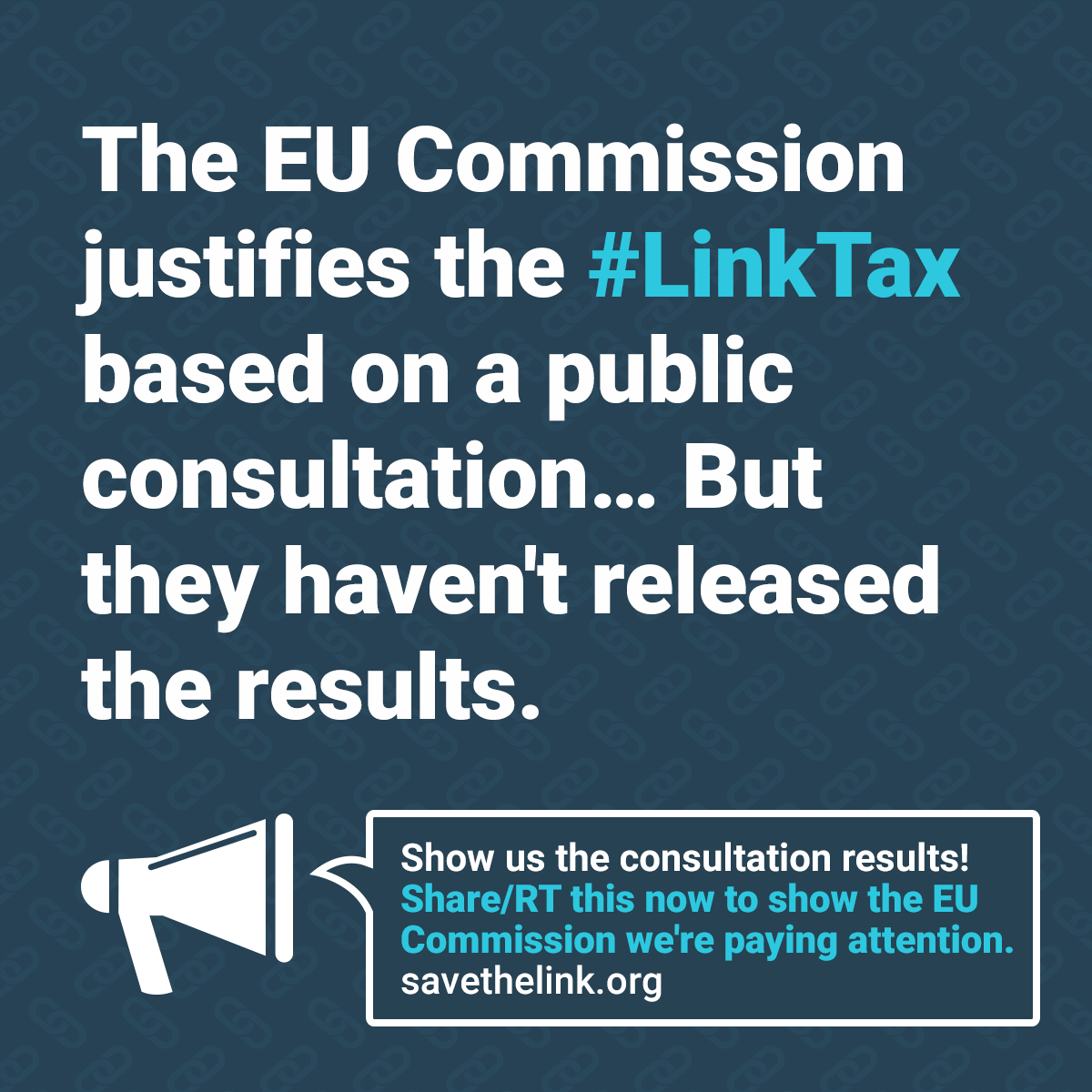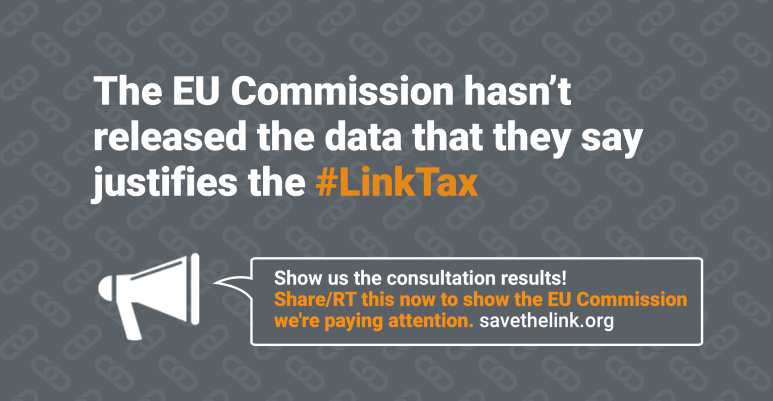Like this article? rabble is reader-supported journalism. Chip in to keep stories like these coming.
Earlier this year, 37,500 Internet users took action with Save the Link to say no to the link tax, but the European Commission seems determined to ignore your voices and sweep them under the rug.
Last week, thanks to a leak by Statewatch, we got our hands on the document which reveals what the Commission has planned for the huge piece of copyright legislation we’re anticipating.
Yet we were incredibly disappointed with the results: the Commission has clearly decided to ignore the public and push ahead with their plan for a link tax. This will mean a new fee on links and their accompanying short snippets of text, despite the resounding NO that the Commission received to this extreme proposal.
So what happened to your voices, and where was the justification?
When the link tax turned out to be unpopular earlier in the year, the European Commission released a new consultation on just this topic and the separate issue of freedom of panorama.
This was a big moment for all of us. We knew we could show clearly, with strong evidence, what a bad idea the link tax would be. So we helped 37,500 of you to take action at SaveTheLink.org/eu, many of whom answered the full 16-question consultation, while others signed on in support of our response.
It wasn’t just us who responded either — we were just one part of an inspiring movement. Our friends at Copyright for Creativity (C4C), for example, helped 2,819 citizens provide detailed feedback to the Commission, with 96 per cent saying ancillary copyright (aka the link tax) would have a strongly negative affect. Many publishers and industry members also offered their experience from countries like Spain and Germany where the link tax has been tried, and failed.
So where are the results?
The standard process is for the Commission to put out a short summary synopsis of the responses to their consultation before a releasing a full in-depth report analysing everything they received. This time? Nada. No synopsis; no report. It’s disgraceful.
The European Commission has a responsibility for drafting laws which affect the whole European Union: it should be including every citizen voice and operating on evidence-based policy-making. Instead it’s seemingly happy to simply ignore the feedback they ask for when it doesn’t match up to their expectation.
All of which prompts us to ask: What exactly is the point of consulting if the Commission already has its own conclusions set in stone?
An Impact Assessment is exactly what it sounds like: a document to show that the Commission has considered how its plans will affect others. But, over a week since the Impact Assessment was published, the Commission still hasn’t released the data it is using to justify pushing ahead. To date, it has nothing to back up its arguments that a link tax will somehow be good for Europe. In the leaked Impact Assessment, the Commission even makes passing acknowledgements to their own survey, citing consultation responses that no one else can see.
We know the link tax hasn’t worked anywhere it’s been implemented — and the Commission knows that their own consultation reinforces this. So trying to push ahead without sharing the results is unacceptable.
As C4C rightly asks:
So, the Impact Assessment draws all kinds of conclusions on ancillary copyright, while NO ONE CAN SEE THE RESULTS OF THE CONSULTATION WHICH CLOSED ON 15 JUNE 2016. There is not even a synopsis report available. C4C for example knows that looking at the 2819 responses we collected, there was a resounding NO to ancillary copyright.
We call on the European Commission to release the full report and analysis of their consultation on ancillary copyright and freedom of panorama. It cannot keep ignoring citizens and toying with due process.
Let’s kick up a social media storm to remind the Commission that its job is to put the interests of European citizens first, not big media companies who have hijacked the whole copyright reform process:
Share on Facebook / Share on Twitter

Like this article? rabble is reader-supported journalism. Chip in to keep stories like these coming.



